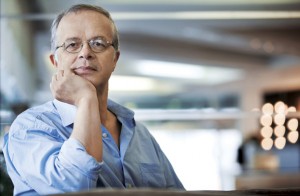Klaus Grawe Lecture 2014
The Klaus Grawe Foundation has invited Prof. Dr. Fabrizio Benedetti, Department of Neuroscience, University of Turin Medical School, and National Institute of Neuroscience, Turin, Italy, to present the Klaus Grawe Lecture 2014 at the Annual Meeting of the Section of Clinical Psychology and Psychotherapy of the German Association of Psychology at the Technische Universität Braunschweig in May 2014. He will talk about “Placebo responses in the Brain”.

Prof. Dr. Fabrizio Benedetti
Professor of Neurophysiology and Human Physiology
Department of Neuroscience, University of Turin Medical School, and National Institute of Neuroscience, Turin, Italy
Although placebos have long been considered a nuisance in clinical research, today they represent an active and productive field of research and, because of the involvement of many mechanisms, the study of the placebo effect can actually be viewed as a melting pot of concepts and ideas for neuroscience. Indeed, there exists not a single but many placebo effects, with different mechanisms and in different systems, medical conditions, and therapeutic interventions. For example, brain mechanisms of expectation, anxiety, and reward are all involved, as well as a variety of learning phenomena, such as Pavlovian conditioning, cognitive and social learning. There is also some experimental evidence of different genetic variants in placebo responsiveness. The most productive models to better understand the neurobiology of the placebo effect are pain and Parkinson’s disease. In these medical conditions, the neural networks that are involved have been identified: that is, opioid, cannabinoid, cholecystokinin, dopamine modulatory networks in pain and part of the basal ganglia circuitry in Parkinson’s disease. Important clinical implications emerge from these recent advances in placebo research. First, as the placebo effect is basically a psychosocial context effect, these data indicate that different social stimuli, such as words and therapeutic rituals, may change the chemistry and circuitry of the patient’s brain. Second, the mechanisms that are activated by placebos are the same as those activated by drugs, which suggests a cognitive/affective interference with drug action. Third, if prefrontal functioning is impaired, placebo responses are reduced or totally lacking, as occurs in dementia of the Alzheimer’s type.
